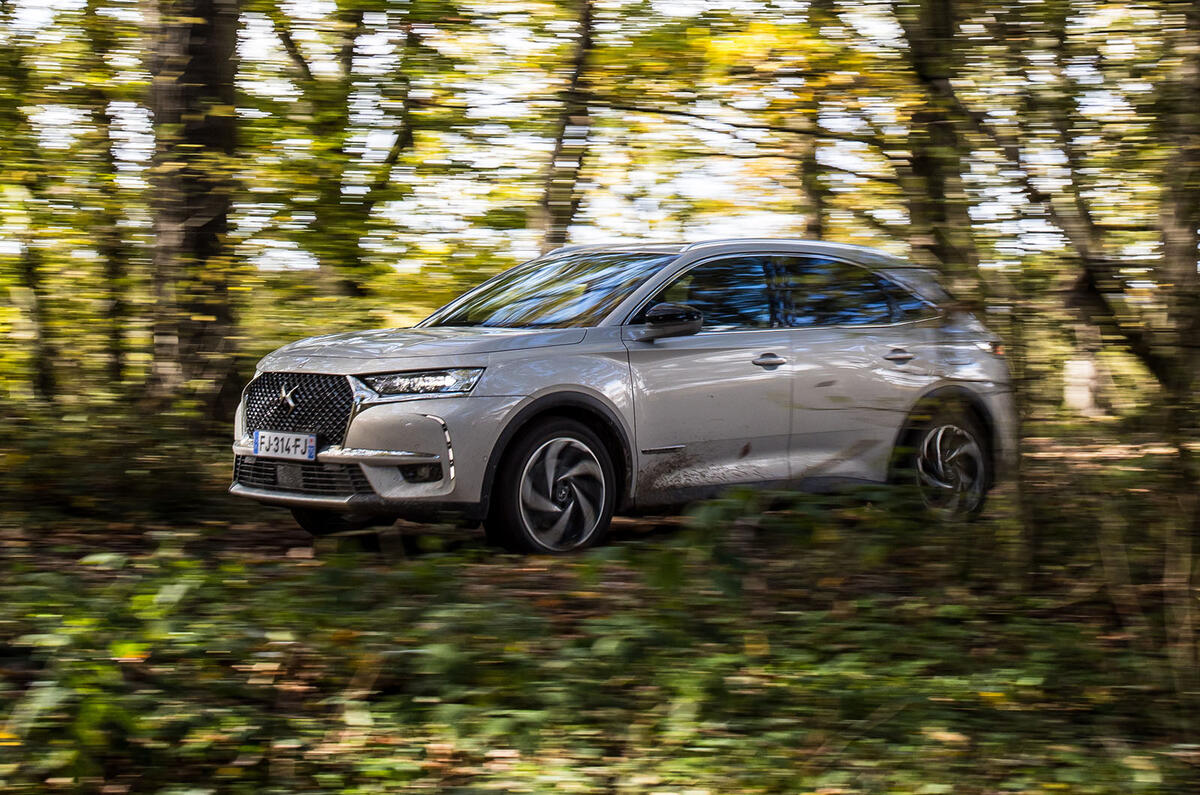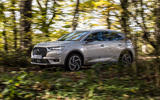What is it?
It may seem somewhat oxymoronic but this particular DS 7 Crossback is not only the greenest version of the French brand’s curiously mid-sized styled SUV, but it’s also the quickest. This is the 7 Crossback E-Tense 4x4: the long-awaited plug-in hybrid variant that can supposedly hit 62mph from a standstill in 5.9sec, emit just 33g/km of CO2 on average and manage a WLTP-certified combined fuel economy of 235mpg.
With moderately potent plug-in SUVs becoming increasingly common, so, too, are the similarly broad spreads of alleged ability that come with them. Volvo’s XC60 T8 and Audi’s Q5 TFSIe manage to conjure similar on-paper stats, although recent experience highlights that if you fail to stay on top of keeping their batteries charged, real-world average economy can easily drop into the 20s. The same will no doubt apply to this new 7 Crossback.
Anyway, its technical spec makes for relatively familiar reading. Up front, there’s a 197bhp version of the PSA Group’s 1.6-litre four-cylinder petrol, which is paired with a 109bhp electric motor. Both drive the front wheels via an eight-speed automatic transmission, while a second, 110bhp electric motor at the rear axle endows the DS with four-wheel drive. Combined, these three engines make for a total system output of 296bhp and 332lb ft.
The electric motors draw their power from a 13.2kWh battery, which is housed beneath the floor so as not to intrude on rear passenger room or boot space. Without its petrol motor running, DS claims, the E-Tense should be able to travel between 34 and 40 miles on electricity alone, at speeds of up to 80mph.




















































Join the debate
Add your comment
The Irony! Germany honors the E Tense DS7 Hybrid
Praise by the Germans. Some highlights: The DS7's fit & finish, its comfort and twin engined Hybrid. Source: Germany's leading site Auto Motor und Sport.
How to ...
... ridicule a fine SUV by testing a pre-production version.
DS
When ....
.... have you driven one? Check USER reviews, come back after.